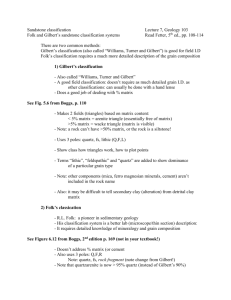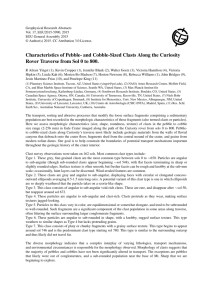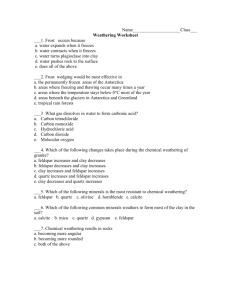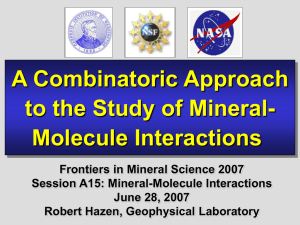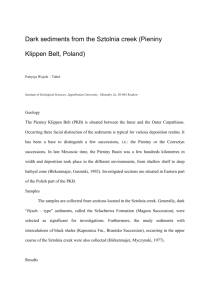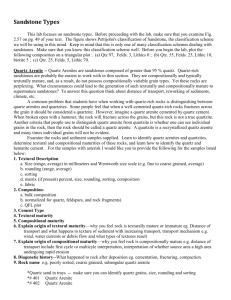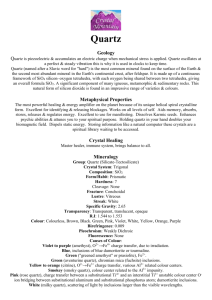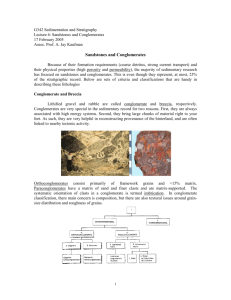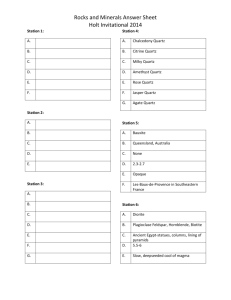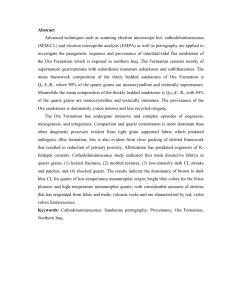tect20276-sup-0001-Supplementary
advertisement
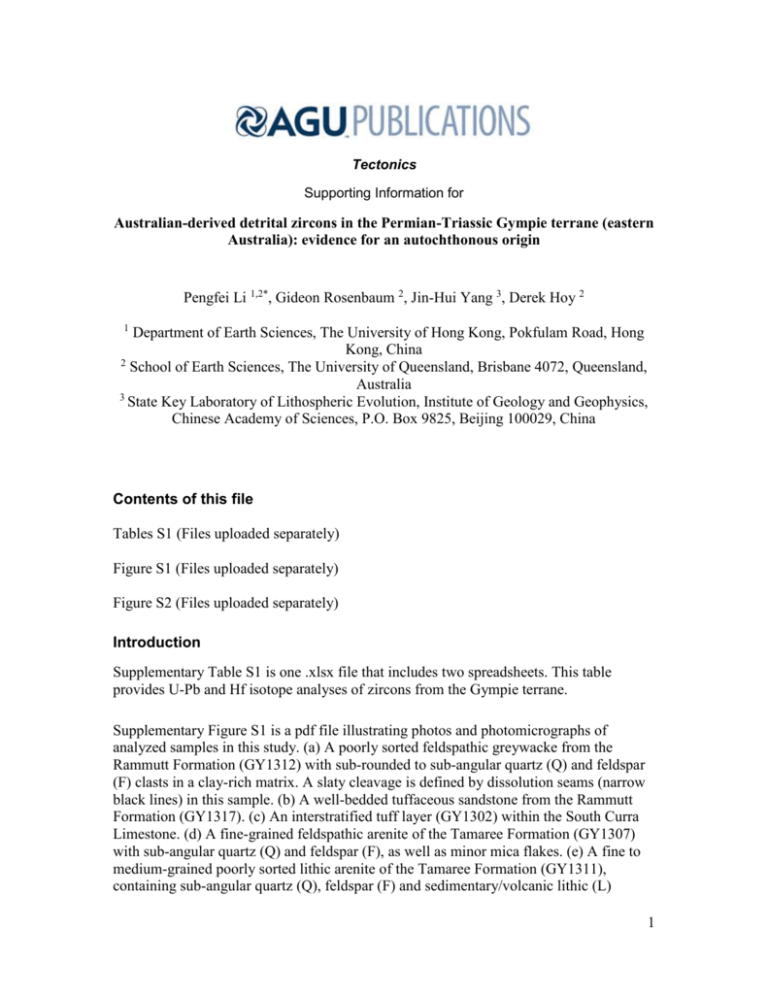
Tectonics Supporting Information for Australian-derived detrital zircons in the Permian-Triassic Gympie terrane (eastern Australia): evidence for an autochthonous origin Pengfei Li 1,2*, Gideon Rosenbaum 2, Jin-Hui Yang 3, Derek Hoy 2 1 Department of Earth Sciences, The University of Hong Kong, Pokfulam Road, Hong Kong, China 2 School of Earth Sciences, The University of Queensland, Brisbane 4072, Queensland, Australia 3 State Key Laboratory of Lithospheric Evolution, Institute of Geology and Geophysics, Chinese Academy of Sciences, P.O. Box 9825, Beijing 100029, China Contents of this file Tables S1 (Files uploaded separately) Figure S1 (Files uploaded separately) Figure S2 (Files uploaded separately) Introduction Supplementary Table S1 is one .xlsx file that includes two spreadsheets. This table provides U-Pb and Hf isotope analyses of zircons from the Gympie terrane. Supplementary Figure S1 is a pdf file illustrating photos and photomicrographs of analyzed samples in this study. (a) A poorly sorted feldspathic greywacke from the Rammutt Formation (GY1312) with sub-rounded to sub-angular quartz (Q) and feldspar (F) clasts in a clay-rich matrix. A slaty cleavage is defined by dissolution seams (narrow black lines) in this sample. (b) A well-bedded tuffaceous sandstone from the Rammutt Formation (GY1317). (c) An interstratified tuff layer (GY1302) within the South Curra Limestone. (d) A fine-grained feldspathic arenite of the Tamaree Formation (GY1307) with sub-angular quartz (Q) and feldspar (F), as well as minor mica flakes. (e) A fine to medium-grained poorly sorted lithic arenite of the Tamaree Formation (GY1311), containing sub-angular quartz (Q), feldspar (F) and sedimentary/volcanic lithic (L) 1 fragments and minor mica flakes. (f) A matrix-supported conglomerate from the Keefton Formation (GY1331) with rounded to sub-angular quartz and sedimentary lithic clasts, as well as minor volcanic/plutonic fragments. (g-h) Two phyllite samples from the Kin Kin beds (GY1310 and GY1334) with penetrative slaty cleavages defined by the preferred alignment of micas and lenticular clasts. Supplementary Figure S2 is a pdf file presenting concordia diagrams for zircon U–Pb analyses with the sample number indicated in the figure. Ellipses with gray color were excluded for the weighted mean age calculation of volcanic rocks (Figure S2c). 2
